I Was Starving Myself To Death And Didn't Even Realize It
Anosognosia: When you don't realize that you're ill.
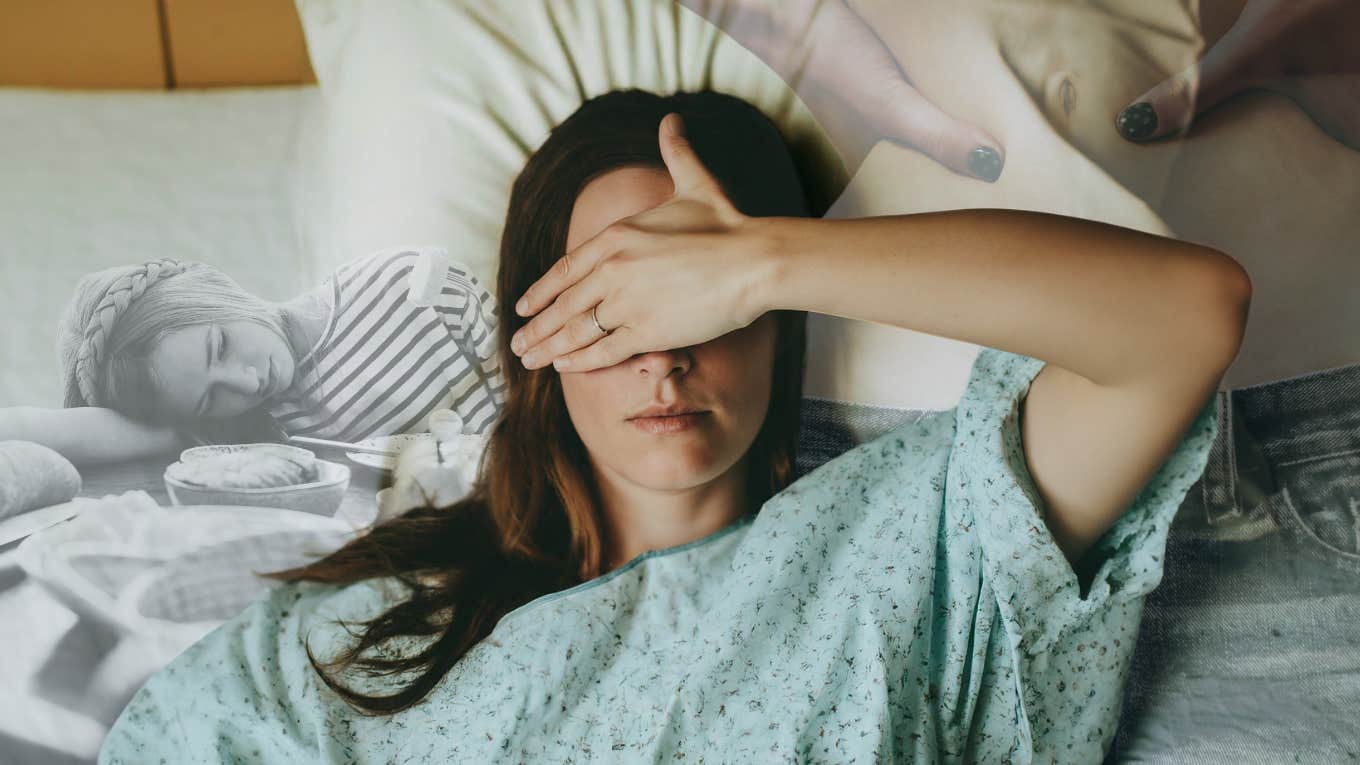 Karolina Grabowska, vadimguzhva | Canva, AI generated | Shutterstock
Karolina Grabowska, vadimguzhva | Canva, AI generated | Shutterstock When I was 15, I was sick — sick to the extent that when I was 16, I was sectioned, and detained under section 3 of the Mental Health Act as "a risk to myself." Had I agreed to be admitted to the hospital willingly, then I wouldn’t have been sectioned. I would’ve been able to go home, and not had seven months of my life pass me by on a hospital ward or spent my seventeenth birthday on the ward of an inpatient unit on 24-hour watch.
Why didn't I just go into the hospital myself?
It wasn’t that I didn’t think that I was deserving of help, it wasn’t me trying to kill myself — it was a case of me genuinely not believing that there was anything that I needed to seek help for.
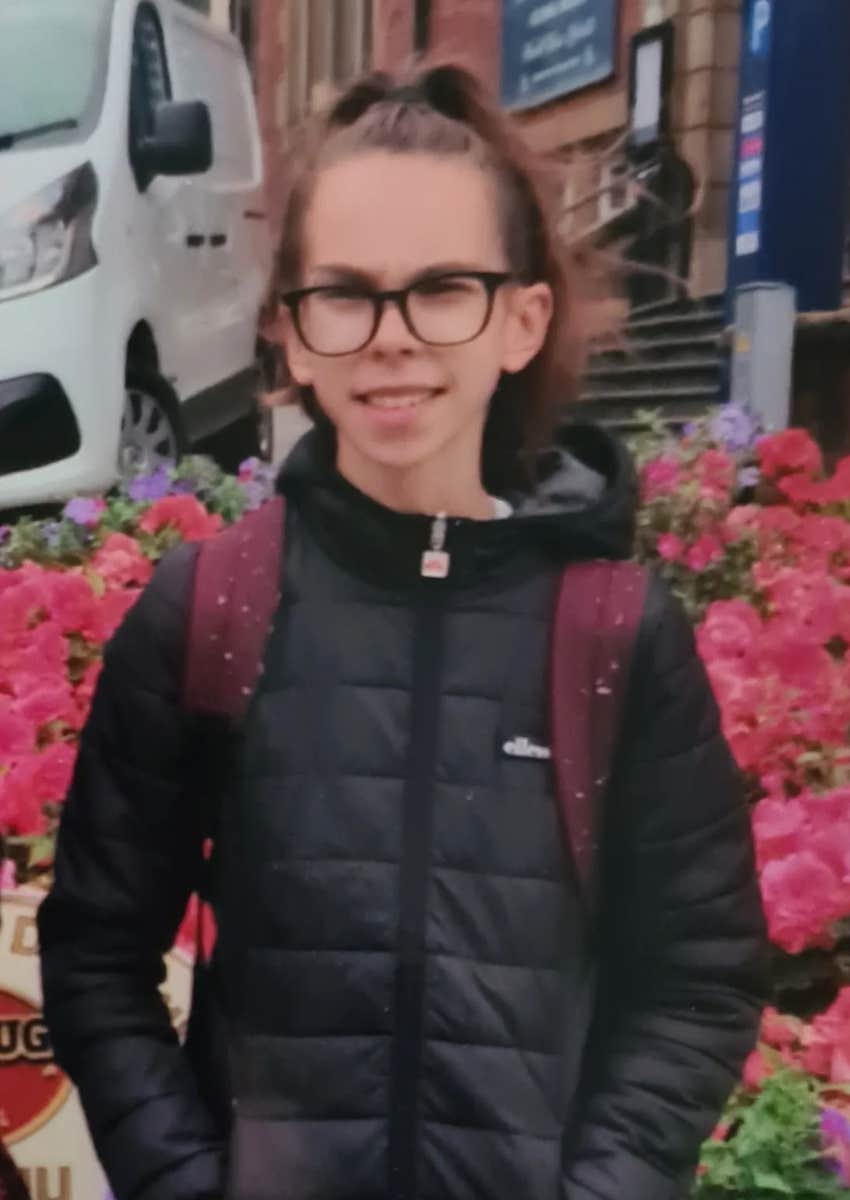 Author at age 16 | Photo from author
Author at age 16 | Photo from author
On day one of my admission, I applied to get my section lifted. I had a tribunal, and I said that I would stay as a voluntary patient. I said everything that I thought they wanted to hear — everything that I thought would get me out of there. (It didn’t work).
After a very long three months under a section, it was finally lifted and I stayed for four months, of my own accord. Why was I such a difficult patient? Why did I refuse to accept help when I was at death’s door only to accept it three months down the line?
It’s not because I was just being stubborn or proud. It's because I genuinely thought that I didn’t need help. Looking back at old photos now is mindblowing because I can see now what poor health I was in and why people were so concerned. But at the time, I couldn't see what everyone else saw.
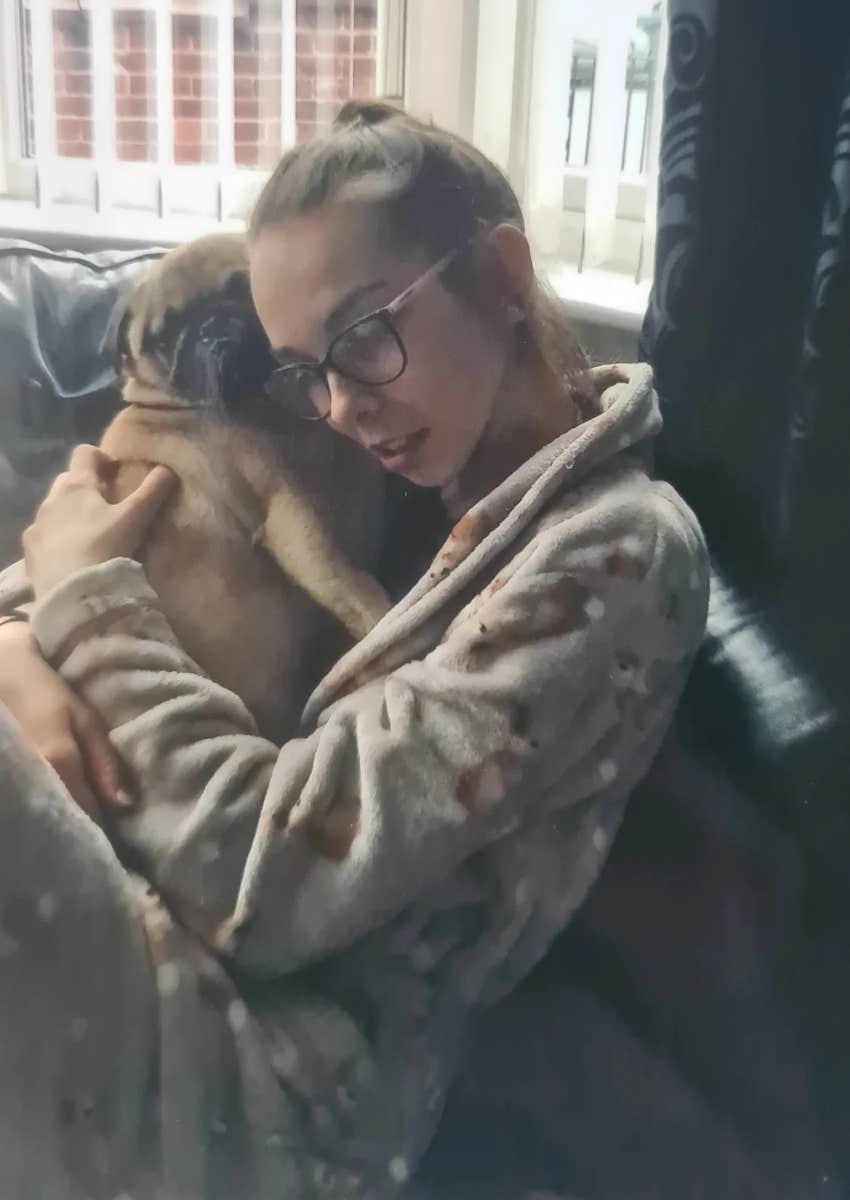 Photo from author
Photo from author
Anosognosia is "a neurological condition in which the patient is unaware of their neurological deficit or psychiatric condition."
Despite all the evidence being presented to me — BMI charts, blood test results, ECG results — I still thought that I was fine.
When I was weighed, I was convinced that the scales were rigged. I spent money buying new sets of scales to weigh myself because theirs "clearly weren’t working," only to get the same number to come up. "These aren’t right either," I'd say and buy another pair.
I felt like the whole world was against me like there was some sort of conspiracy to put me in the hospital. Every time I looked in the mirror, all I saw was fat — yet now when I look back at photos from the time, I was the smallest person there, shorts hanging off me, bones protruding, unhealthy not because I was "fat," as my brain convinced me, but because I was emaciated.
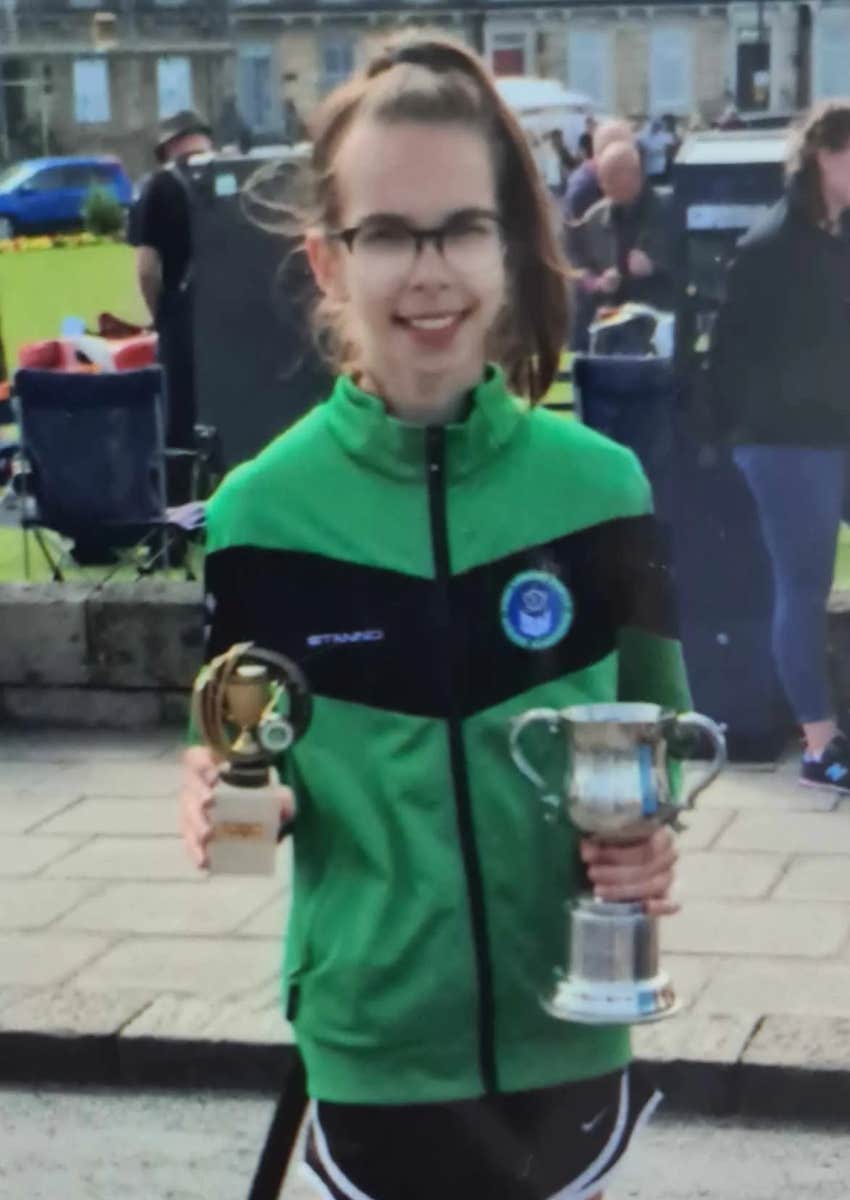 Photo from author
Photo from author
I used to think that when my psychiatrist told me that I had to stop running and start eating more, she was just jealous of my discipline, the discipline I had to run half-marathons before sunrise on an empty stomach, the discipline to push my body to the extreme in the name of perfectionism.
It took me being forcibly taken away from the environment that was feeding (pardon the pun) my eating disorder — my running club, my family home, and essentially, my freedom, for me to realize that I did, in fact, need help.
Like any addiction, it feels like an impossibility to stop the pattern of restriction and overexercise that coincides with anorexia, and often, you don’t believe that you need to stop, don’t realize that the situation has gotten out of control, or that there’s anything wrong. Also like any addiction, often it takes a person being removed from the situation to realize their need to recover. A change in environment prompts a change in mindset which prompts a lifestyle change.
It was only after three months in the hospital that I finally accepted I did need help, largely thanks to the support workers, nurses, psychologists, and psychiatrists who could see through the hard-faced exterior I’d constructed for myself in which I refused to show any emotion, "eating to get out," as they called it, pretending that, with every bite of food, with every glance in the mirror, I didn’t want to rip my flesh off. They saw through my act and they talked to me and they talked to me and they talked to me until, finally, I talked back.
In "exposure therapy," when I went out for a meal with my support worker, I opened up for the first time about my childhood, about what lay deeper than the obsession with running and healthy eating, about what caused my obsession. Why did I have such an ingrained view that everything I did had to be "perfect," that if I wasn’t perfect, I wasn’t worthy?
My seven months in the hospital were so transformative. Upon discharge, I was physically the heaviest I had ever been, but mentally, the lightest — the dark cloud that had been hanging over me for the previous three years had been lifted.
I left with hope, with all the letters from the staff whom I came to see as family, with all the memories from patients turned friends, and with the knowledge that, sometimes, oftentimes, it takes things getting worse for things to get better.
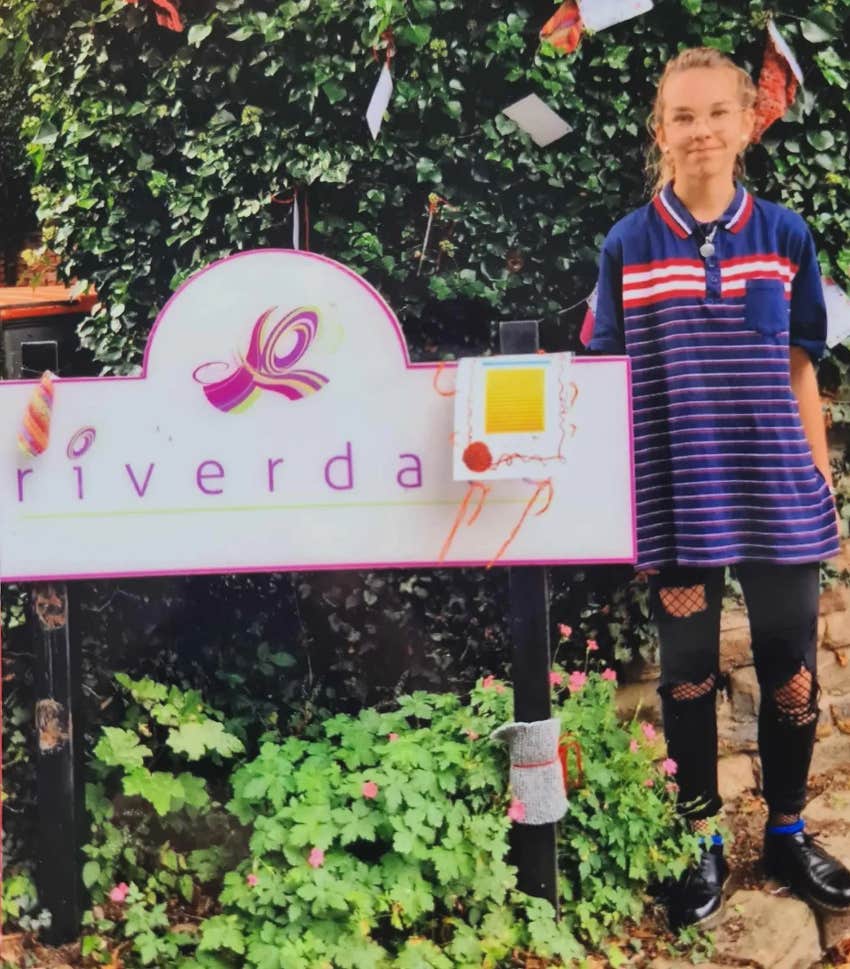 Author on discharge day | Photo from author
Author on discharge day | Photo from author
It will be six years since I was admitted to the hospital. In those years, I had two relapses at 19, one "do I want to be here?" moment at 20, and the realization that I do, at 22.
Because I don’t want my 23rd birthday to be a mirror image of my 17th. Because I want to keep my freedom. Because I want to keep my life. Because at 14, 15, 16, 17, I was close to losing it.
Had I not been forced into treatment at 16, I genuinely don't think I'd be here today. With a heart rate of 28 beats per minute, my body was shutting down, with every day that passed. Thank God that it didn’t.
What felt like the end of the world was, in fact, the beginning: the beginning of the rest of my life.
Lisa Fouweather is a writer, poet, and founder of 'Portfolio of Hope,' a blog exploring themes from mental health to philosophy. She's had poems featured on the BBC and writes for Medium, Portfolio of Hope, YourTango, and Doncaster Free Press.

